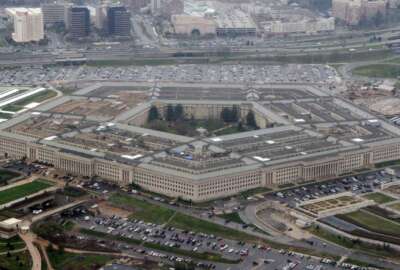

Military personnel will get their next paycheck in full, but things are a little more complicated for DoD civilian employees.
Now that the Senate reached a deal, it’s possible this shutdown will come to a close.
But what does that mean for military and Defense Department civilian employees who worked during the three-day closure from Jan. 19 to Jan. 22?
The good news for those in the military is that they will be paid for all work before the Jan. 19 pay period. That means the Feb. 1 paycheck they receive will be paid in full.
“Active military, Reserve and National Guard members will be paid on time for pay entitlements earned Jan. 19 or earlier. Military members cannot be paid for duty performed after the expiration of the Continuing Resolution Authority on Jan. 19. Once a CRA or another appropriations act is signed into law, normal disbursement of military pay will resume,” Pentagon Spokeswoman Lt. Col. Michelle Baldanza said in a Jan. 22 statement to Federal News Radio.
Congress will need to pass a bill between now and Feb. 15 to make sure the military is paid for time worked during the shutdown.
For civilians things are a little more complicated.
DoD civilians are paid by an hourly wage. Their pay period ended on Jan. 20, so all work prior to Jan. 20 will be accounted for and paid in full.
For the days during the shutdown, civilians cannot be paid without Congress passing a law.
Since the government conducted an “orderly shutdown” on Jan. 22, DoD civilian employees were required to come into work to sign paperwork and close out any busy work like emails, Baldanza said.
Civilians were able to clock up to four hours today if they had work to finish up. Those hours will be paid no matter what.
If the shutdown ends, Congress will have to pass a bill to pay any civilian workers for time over the weekend.
During the last shutdown in 2013, Congress voted to pay civilian employees in full, even those that did not come into work.
If Congress does the same thing this time, DoD civilians will be paid for a full day of work on Jan. 22.
Reps. Don Beyer (D-Va.) and Rob Wittman (R-Va.) already introduced a bill in the House that would retroactively pay federal employees for time they did not work during the shutdown.
That bill was met with fanfare from unions like the American Federation of Government Employees.
“Federal employees are hardworking public servants who are dedicated to providing quality public services. Federal employees and their families should not be forced to go without pay when they are not allowed to do their jobs because Congress cannot pass a funding measure. Too many Americans—veterans, seniors, and other hardworking people — rely on services provided by the federal government. In a government shutdown, it is the American people who pay the price,” AFGE President J. Daniel Cox said in a statement after the bill was introduced.
There is one subsection of civilian employees who potentially will not have their pay affected by the shutdown.
Civilians whose organizations have available resources, like the Defense Working Capital Fund or non-appropriated funds, will be paid as normal until the fund or agency’s resources are exhausted.
Copyright © 2025 Federal News Network. All rights reserved. This website is not intended for users located within the European Economic Area.
Scott Maucione is a defense reporter for Federal News Network and reports on human capital, workforce and the Defense Department at-large.
Follow @smaucioneWFED

